Top 7 Health Benefits of Gooseberries
Gooseberry is a popular name for numerous ribs species as well as a vast number of plants that look similar. Gooseberry is a popular name for numerous species ... read more...of Ribes (which also includes currants) and a vast variety of plants that look similar. Ribes berries are edible and can be green, orange, red, purple, yellow, white, or black. Their taste varies from sour to sweet. Here are some of the reasons why gooseberries are an excellent supplement to a balanced diet.
-
Gooseberries are low in calories and fat while being high in nutrients. Just 1 cup (150 grams) of gooseberries contains:
- Calories: 66
- Protein: 1 gram
- Fat: less than 1 gram
- Carbs: 15 grams
- Fiber: 7 grams
- Vitamin C: 46% of the Daily Value (DV)
- Vitamin B5: 9% of the DV
- Vitamin B6: 7% of the DV
- Copper: 12% of the DV
- Manganese: 9% of the DV
- Potassium: 6% of the DV
Vitamin C is an antioxidant that is essential for your neurological system, immunological system, and skin. Vitamin B5 is required for the production of fatty acids, whereas vitamin B6, which is required for the proper functioning of many enzymes and cells in your body, aids in the conversion of food into energy. Copper is beneficial to the heart, blood vessels, immune system, and brain. Manganese, on the other hand, aids metabolism, bone-building, reproduction, and immunological response, whilst potassium is required for regular cell function.

Highly nutritious 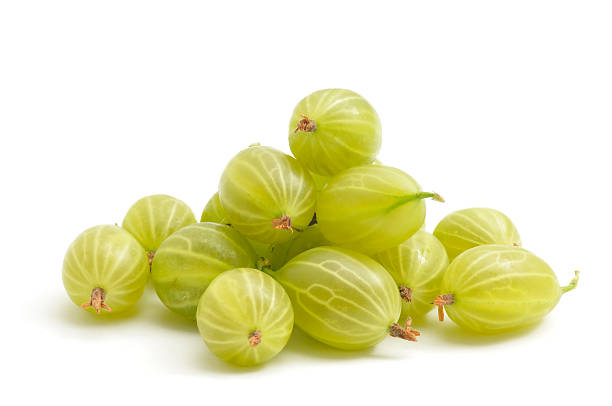
Highly nutritious -
Gooseberries are high in fiber but low in energy, so you can eat a healthy amount without gaining weight. In fact, 1 cup (150 grams) of gooseberries provides just more than 3% of the average person's total daily calorie requirements, making them a healthy, low-calorie snack. Furthermore, studies suggest that consuming berries might help you lose weight and eat fewer calories overall.
One tiny research, for example, discovered that individuals who ate berries as a snack consumed 130 fewer calories at their next meal than those who ate the same number of calories from sweets. Gooseberries are also high in both soluble and insoluble dietary fiber. One cup (150 grams) of gooseberries has 26% of the daily value for fiber, making it an excellent option to increase your consumption. Insoluble fiber adds weight and consistency to your stool, but soluble fiber slows the flow of food in your stomach, which can lessen appetite and promote feelings of fullness.
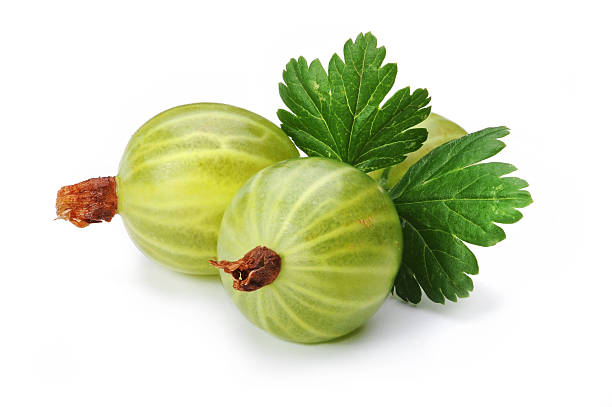
High in fiber and low in calories 
High in fiber and low in calories -
Antioxidants are chemicals that aid in the battle against the effects of free radicals. These are reactive chemicals that induce cellular damage and result in oxidative stress. Many illnesses and premature aging are linked to oxidative stress. Antioxidant-rich diets may lower the risk of some cancers, heart disease, type 2 diabetes, and aging, and protect your brain from a degenerative illnesses.
Gooseberries are high in antioxidants, including vitamin C and trace quantities of vitamin E, as well as phytonutrients. Plants create phytonutrients to stay healthy and to defend themselves from UV damage and insects. Some of the phytonutrients in gooseberries include:
- Flavonols: These are associated with heart health and may have anti-stroke, cancer-fighting, and antiviral properties. Quercetin, myricetin, kaempferol, and isorhamnetin are the most common kinds found in gooseberries.
- Anthocyanins: These compounds are the colored pigments in fruit, and they’re associated with eye and urinary tract health, improved memory, healthy aging, and a lower risk of some cancers.
- Aromatic acids: In gooseberries, these include caffeic, chlorogenic, coumaric, hydroxybenzoic, and ellagic acid.
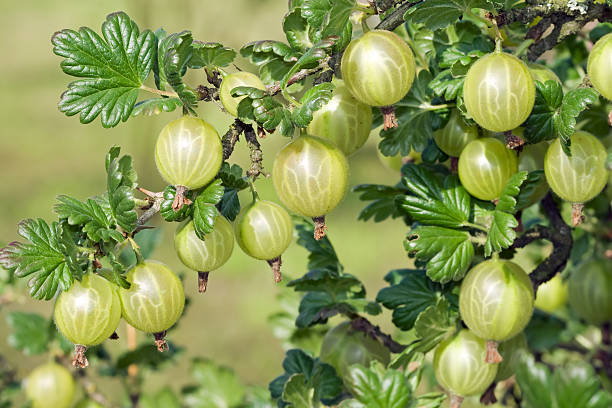
Rich in antioxidants 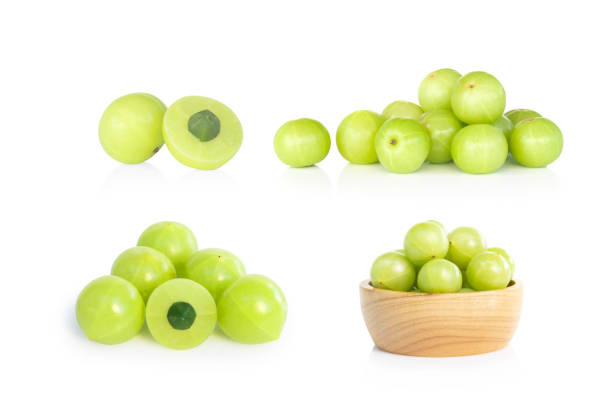
Rich in antioxidants -
High blood sugar levels have been related to type 2 diabetes, heart disease, stroke, dementia, and a variety of other diseases. Gooseberries offer a number of characteristics that may help with blood sugar management. For starters, they're high in fiber, which delays the absorption of sugar into your system and prevents blood sugar rises.
Furthermore, research in test tubes shows that gooseberry extract is an alpha-glucosidase inhibitor. It binds to certain enzymes in your small intestine, blocking them from transporting sugar from your gut into your circulation. Finally, gooseberries contain chlorogenic acid, which may help lower blood sugar levels after starchy meals by slowing carb absorption. Despite the positive results, additional study on the influence of gooseberries on blood sugar levels is required.

May help control blood sugar 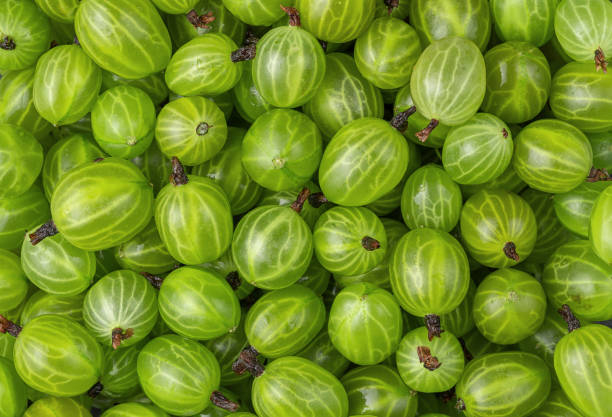
May help control blood sugar -
Iron excess in the cells has been related to some degenerative brain illnesses. Excessive iron levels can promote the formation of free radicals, which are chemicals that harm your cells. Because your brain cells have a high concentration of iron, they are more sensitive to harm.
Gooseberries are an excellent source of organic acids, including 11-14 mg of citric acid per 100 mg of fruit. Citric acid inhibits iron buildup in cells and has been shown to lessen the risk of illnesses such as Alzheimer's and stroke when ingested on a regular basis. Gooseberries' antioxidants and phytonutrients are also thought to improve age-related brain illnesses and lower your risk of stroke. More research is still required.
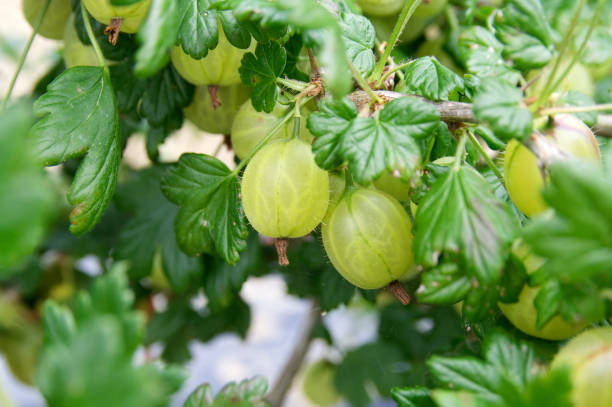
May protect your brain 
May protect your brain -
Berries, phytonutrients, and antioxidant-rich diets have been associated with a lower risk of some malignancies. Gooseberries include anticancer chemicals such as folate, phenolic compounds, and vitamins C and E. These nutrients are considered to decrease, counteract, and repair damage caused by oxidative stress and inflammation, both of which can lead to cancer formation.
Anthocyanins, for example, have been shown in animal and test-tube experiments to block the formation of cancer cells and may lessen the risk of some malignancies, including colon, pancreatic, and breast cancer. However, further study is needed to evaluate the effects of gooseberries on cancer.

May have anticancer effects 
May have anticancer effects -
A diet high in fruits, such as berries, has been linked to a decreased risk of heart disease. Gooseberries are high in antioxidants and potassium, two minerals that improve heart health. Antioxidants help your heart by inhibiting the oxidation of LDL (bad) cholesterol in your blood, which raises your risk of heart disease.
Furthermore, phytonutrients such as flavonols and anthocyanins can lower blood pressure and enhance blood vessel function, potentially lowering your risk of heart disease. Finally, potassium is necessary for blood vessel health. It promotes normal heartbeat and blood pressure and is linked to a lower risk of heart disease and stroke.
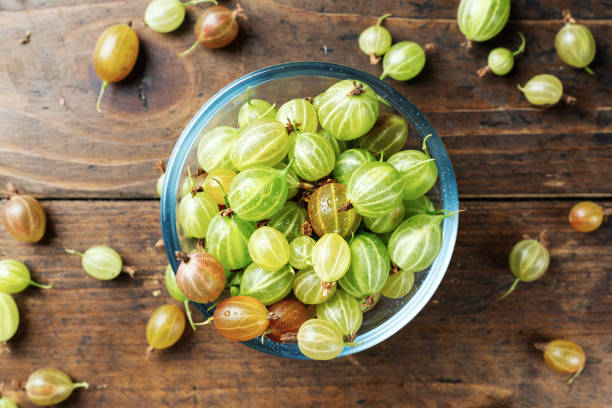
Good for your heart 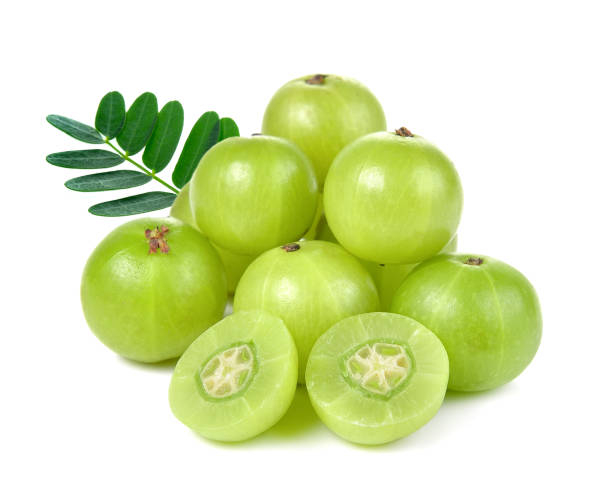
Good for your heart




























